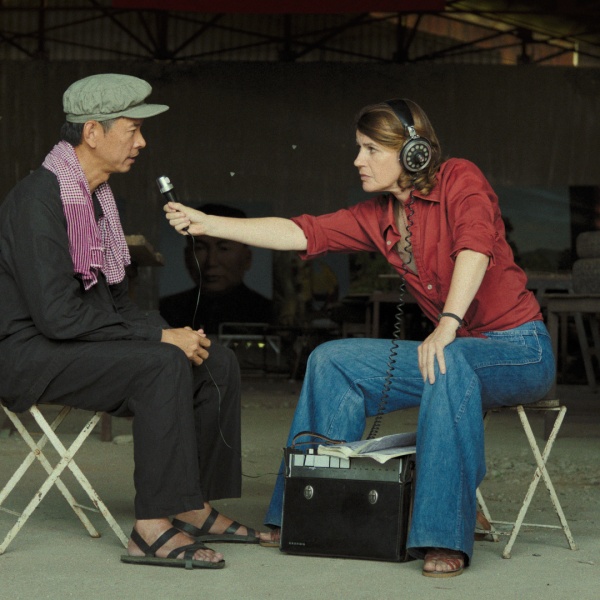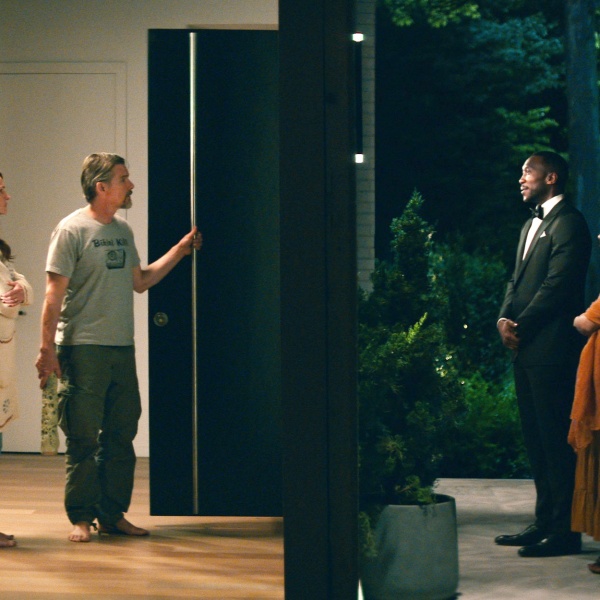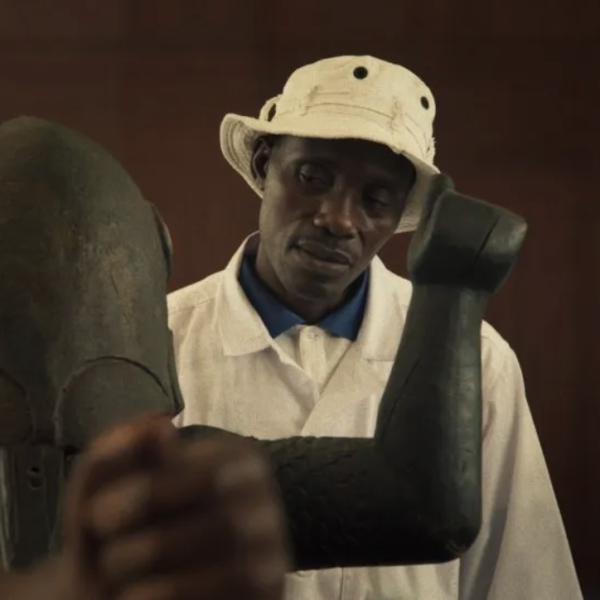A documentary about the shaping of trans identity in the shadow of patriarchal society from a first-time filmmaker who was once mentored by philosopher Jacques Derrida sounds, on paper, like homework. But trans writer-turned-director Paul B. Preciado’s “Orlando, My Political Biography” is hardly so, instead revealing itself as a playful and joyous ode to how transness calls out the social order’s inherent fictions, binaries, and normativities — and it’s also a loving paean to the prose of Virginia Woolf.
The great British writer’s “Orlando: A Biography,” about a noble who changes genders in their sleep across a 300-year lifespan, already inspired a great Sally Potter film, 1992’s “Orlando” starring Tilda Swinton. But Preciado’s film essay, populated by a colorful cast of sparky trans characters worthy of a Pedro Almodóvar fresco, is a fitting heir to “Orlando’s” literary and cinematic bona fides, both an embrace for trans audiences and an open door of understanding for those who aren’t. It’s one of the best trans documentaries in years.
Trans laws in France are among the most progressive in the world, though this French-language documentary, a series of fictionalized set pieces mixed with floridly staged talking head interviews with actual trans people, interrogates the challenges in getting there. France, in 2010, became the first country in the world to allow trans people to legally change their gender without transitioning, undergoing surgery, or seeking out medical treatment. Trans rights, meanwhile, in the U.S. are shaky or being eroded altogether. So “Orlando” arrives at a heartening moment in its celebration of the quote-unquote subaltern of the trans individual.
A collective of a 26 trans and non-binary people make up Preciado’s visually inventive reimagining of a classic literal text from the early 20th century, each playing a version of the iconic gender nonconformist of the book’s title. Preciado finds striking ways not only to illuminate how Woolf’s ideas are as radical now as they were then, but also to bend the text toward a more contemporary inquiry into transness. For example, Preciado restages a scene between the nobleman Orlando as a teenager encountering Queen Elizabeth as a Freudian encounter between a genderqueer youth and the psychoanalyst they’ve been forced (whether legally or by their parents) to seek a diagnosis from. (Amusingly, when the doctor summons “Orlando” from the waiting room, there are already a half dozen other “Orlandos” there, including Preciado.)
That teen explains to the doctor, to his bewilderment, how they are not in fact a girl “trapped” in a boy’s body, but a “living body trapped in a normative regime.” The metamorphosis of the character in Woolf’s 1928 novel then becomes a metaphor for how the body can escape it. In the book, it happens in Orlando’s sleep, and cinematographer Victor Zébo, production designer Anna Le Mouël, and costumers Thomas Goudou and Caroline Spieth play with dreamscapes as a place between changing identities. The costumes and stylized (but never in bad taste!) hair and makeup are especially eye-popping as everyone gets the chance to assume the wears of the noble aristocrat from the book.
Trauma isn’t totally absent from “Orlando,” though it’s not at the forefront of this unorthodox film’s mind. That’s partly in response to how queer storytelling, generally speaking, arguably has more of a responsibility now than ever to trade trauma for joyousness, and even something utopian, when we’ve by now seen plenty of the former across film and television.
But that doesn’t mean the film isn’t without its windows into the injustices facing queer people, with some of the characters recounting their experiences with transphobia and one woman being denied her reservation at a hotel once the receptionist sees the sex listed on her passport. (She handles it quite flippantly, though, telling him, “I’m not a sir or madam, I’m Orlando!”) But even newsreel footage of gay liberation activist Marsha P. Johnson shows her at her most irreverent and shirking of decorum rather than remembering her for the dire end she’s often mythologized for.
Preciado’s “Orlando, My Political Biography” is a film of many visual pleasures, and they’re ones Preciado clearly shared in while devising this generous and buoyant inquiry into institution and identity. American queer critic and iconic feminist B. Ruby Rich called “Orlando” “the first trans masterpiece,” and while that may not be true, it’s certainly one of the first to make the headiness of gender theory, well, fun on the big screen.
Grade: B+
“Orlando, My Political Autobiography” is now in select theaters from Sideshow and Janus Films.



